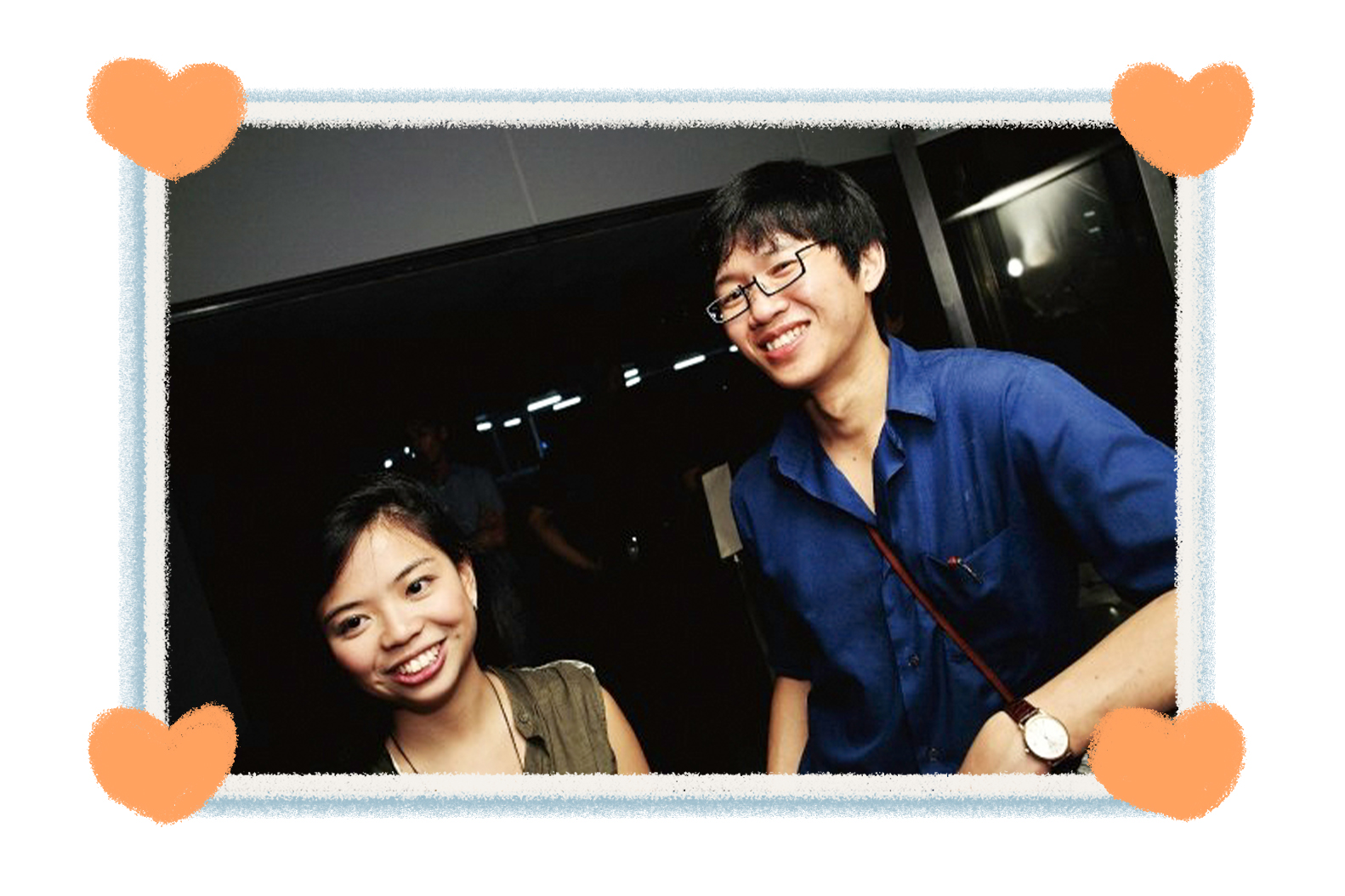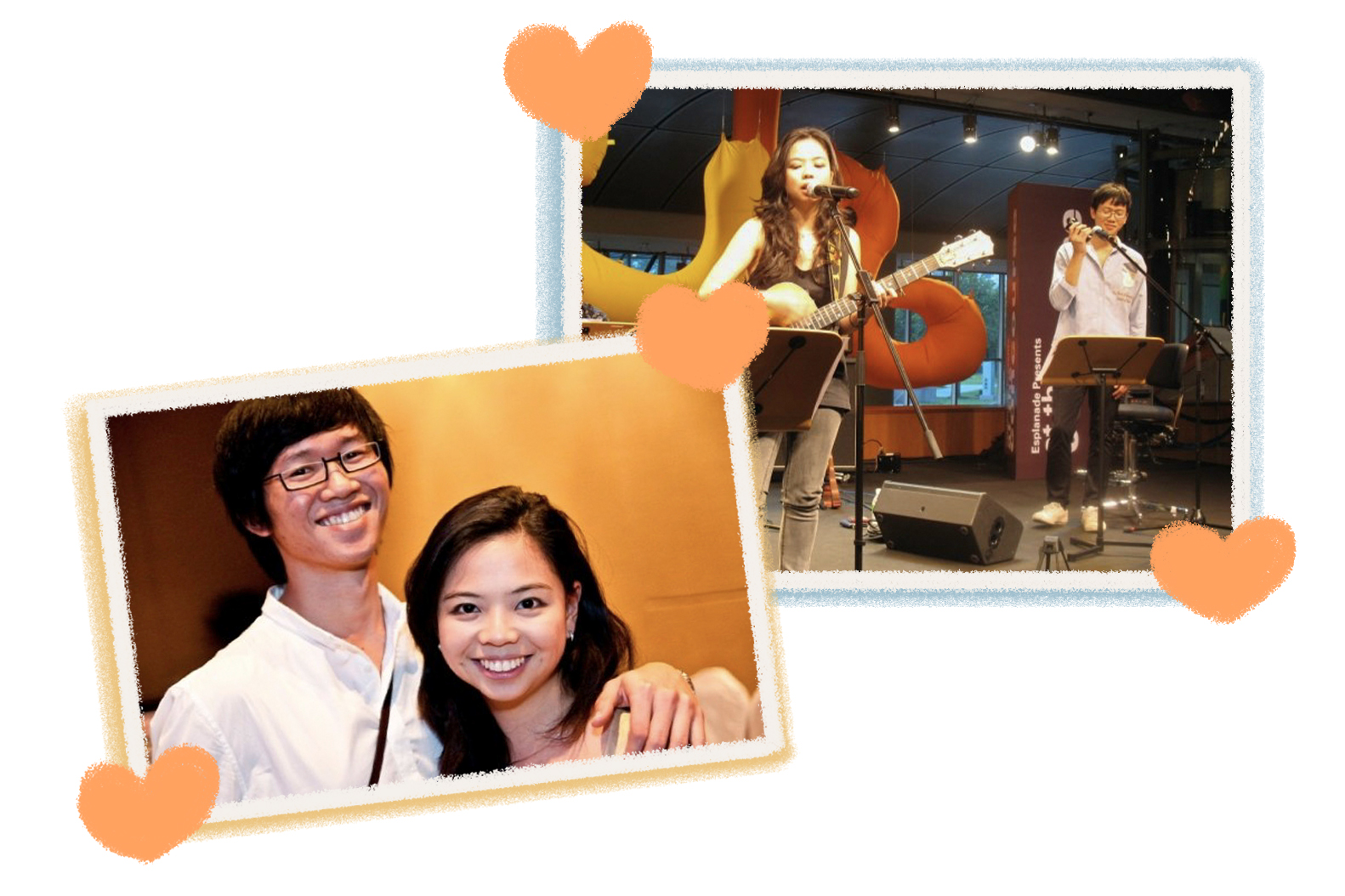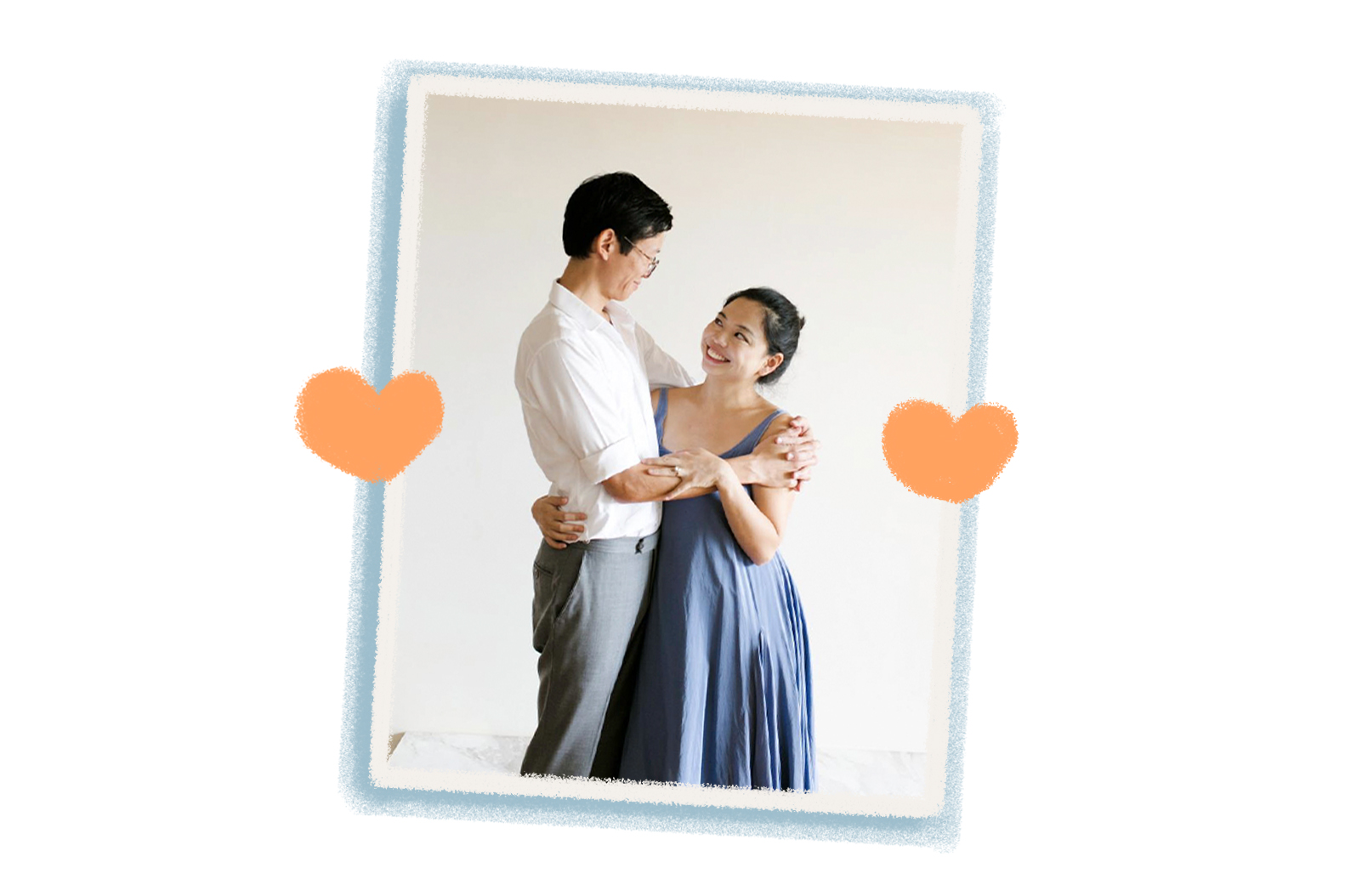Ken Tan and Angel Lee dated for 4 years before deciding to commit to marriage. Sharing about the impact that our broken families can have on our relationships, they talk about their journey from almost not “making it” to taking the next step as a couple.
“I was 24 years old when Ken asked me to be his girlfriend, and I remember asking and praying to the Lord if He can write it on the walls or on the clouds to clearly tell me if Ken was the one,” says Angel, thinking back to the time when the both of them had reconnected in Singapore after living overseas.
Ken had been in New Zealand, while Angel was in the US. Despite the distance, they had kept up a long-distance friendship after first getting to know one another through a Christian music festival as teenagers.

Recounting how she sought the Lord fervently in this decision, Angel shared that because she had come from a family line where divorce was common, “picking the right guy was very crucial”.
Her parents were divorced, her mother’s parents were divorced, and out of her mum’s seven siblings, five of them were divorced.
While God didn’t give her the obvious physical sign she wanted, He spoke in a still small voice: Angel received the peace and assurance to say “yes” to Ken after much prayer.
Interestingly, she also remembered a journal entry she wrote when she was 19 – it was a list of top traits she was looking for in a guy. Even after six years, there was no one who matched the list as well as Ken.
But even after agreeing to be Ken’s girlfriend, Angel shared how these doubts of whether Ken was the “right one” would still emerge from time to time. They also had a fair amount of differences to resolve.
Angel shared: “It was like two different spinning gears coming together. There was a lot of friction and a lot of difficulties.
“Even though we were friends for six years, we almost didn’t make it because we came from such different backgrounds.”

It didn’t help that Angel’s mother would encourage her to always have a back door prepared, such as reminding Angel to maintain her own bank account rather than a shared one, if the couple were to get married.
“Because she’s divorced, she would encourage this self-preservation mindset,” Angel said.
On Ken’s side, he, too, had been influenced by his own upbringing. He shared: “I would catch myself reacting very similarly to how my parents would, particularly in the way I responded to conflicts.
“When Angel and I had arguments, I would get incredibly angry, and we almost broke up because of my anger, which was self-destructive.”
Ken recalled how, while growing up, his father would have angry outbursts and lash out in violent ways. This angry streak was also seen in his grandfather.
“It’s that idea of how hurting people hurt others. My grandfather was broken, so was my dad and I,” he confessed.
Ken also observed how his father had influenced his sense of commitment.
“I grew up in a house where my dad was afraid of commitment even towards the most mundane daily decisions,” said Ken. “Commitment became scary for me because I didn’t have that model of success, and I became fearful of failure.”
In addition, the relationship dynamic between his parents left him confused. “I remember being young and not understanding why my parents slept on different beds, even though they were technically married.”
The thought of getting into a life-long relationship was scary for Ken because he was afraid of failing.
When you make a covenant with someone, that’s it – there’s no back door.
Thankfully, the couple became more aware of how their backgrounds impacted their personality and perceptions before they tied the knot.
Although they had already attended their church’s pre-marital counselling, they also came to know about another marriage preparation course, where they experienced healing from their past and gained confidence in marriage.
“One For Life felt like an intentional spiritual journey that brought us deeper into what a covenant marriage is,” said Angel. “When you make a covenant with someone, that’s it – there’s no back door.”
Tracing their family history also made Angel cognisant of how her parents’ divorce affected her.
Similarly, Ken recounted how he had not only received prayer over his anger issue which had been “passed down” the generations, but also picked up practical tips on how to communicate better and fight well.
Another thing that helped both of them greatly was the presence of a community who modelled what a healthy yet very real marriage looked like, which made the couple realise that marriage is not so unobtainable after all.
For instance, one of their leaders shared about how they managed to persevere through the crisis of adultery in their own marriage and work it out together.
“To me, that was very real and powerful – to hear their testimony, their struggle and their process of forgiveness,” said Angel. “There was so much transparency, and they were incredibly relatable.”
Being surrounded by good role models eventually led Angel to learn that beyond finding “the one”, she also had to be the “right one” to the person she committed her life to.

Agreeing about the benefit of mentors, Ken pointed out how important it was to surround himself with the right voices, especially because he didn’t have a strong father figure.
“Having good mentors showed me that marriage was completely doable. Even if my mentors didn’t have it all figured out, it lowered the bar of what a ‘perfect’ marriage was, and made the idea of marriage and commitment more real.”
Two years after attending One For Life, the couple felt like they were in a better place to progress to the next season of life as husband and wife. They tied the knot in 2011 and now have three children.
“In our last nine years of marriage, we haven’t fought at all because I think we did all our fine-tuning during our dating times. No shouting at each other and no major fights,” quipped Angel.
The couple emphasised how having trusted friends and mentors speak into their lives brought them much inner healing, which also helped them better understand their identities as God’s children.

Ken explained: “It’s really important to understand our identity as a son or daughter of God. Because, typically, when a person comes from a broken home, they carry with them a strong orphan spirit.
“But once we are established in our identities as God’s children, we’re able to see marriage from the perspective of a child of God rather than a worker or an orphan.”
Believing that “broken men break others”, Ken pointed out that who we are today would have definitely been affected by what our previous generations were like.
He said: “But this doesn’t mean that if you’ve been dealt with a bad hand, you will have a similar future. Because if we have God, then that’s the real game-changer.
“With God, you will get the full expression of abundant living.”
All photos courtesy of Ken and Angel.
- How has your parents or family shaped who you are today?
- Do you have any fears or doubts about marriage?
- Are there any mentors in your life whom you can share your concerns with?









